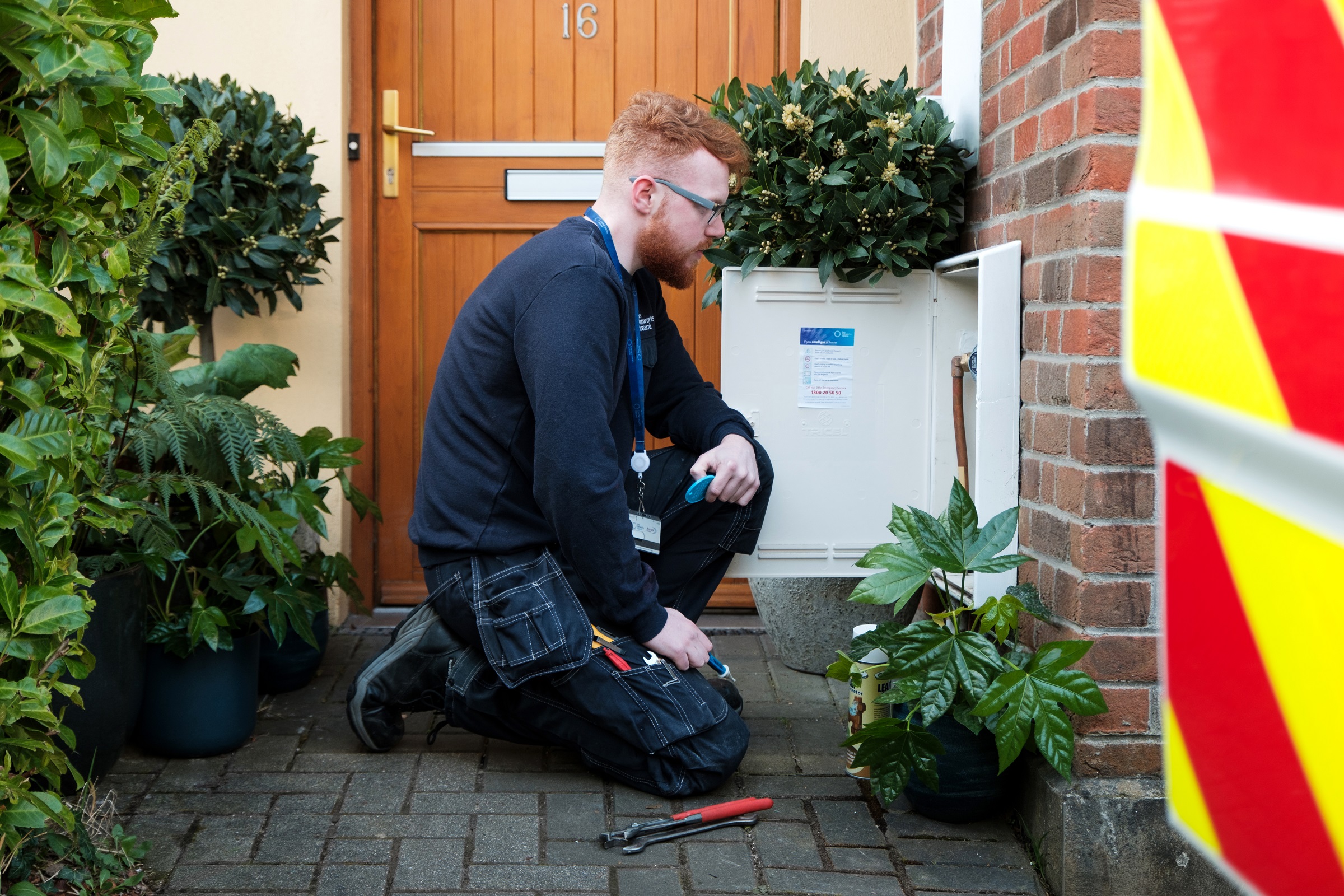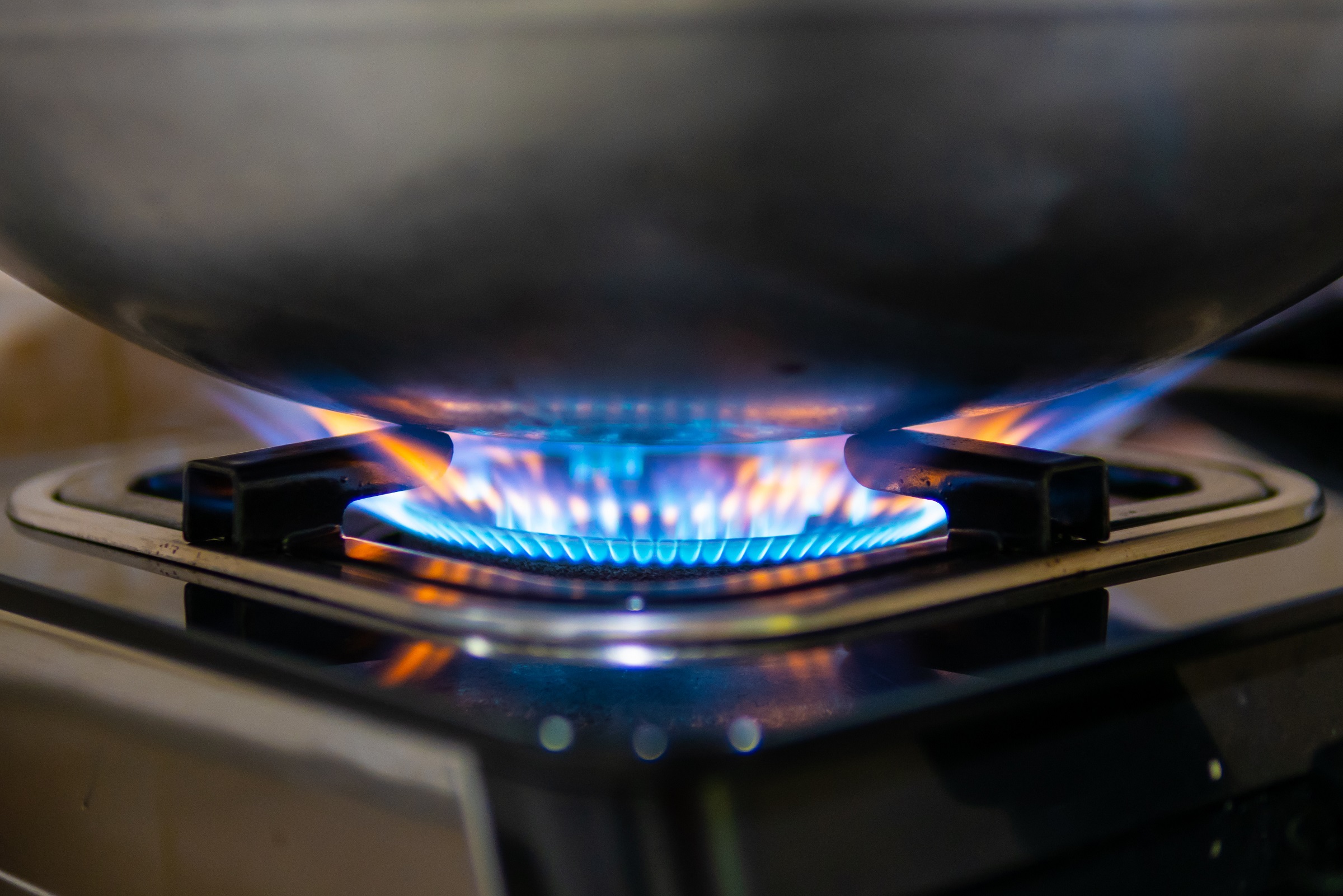Gas safety in your home
If you smell gas call Gas Networks Ireland 24 hour emergency line immediately on 1800 20 50 50 and follow the steps below.
Don't assume somebody else has reported the smell.
What to do if you smell gas:
- Ensure gas appliances are turned off and have not been left on and unlit
- Don't smoke, vape or use a naked flame
- Don't unplug or switch anything electrical on or off
- Open windows and doors
- If the smell persists turn off the gas at the meter, see our guide here
- Call our 24 hour Emergency Line on 1800 20 50 50 no matter who your gas supplier is.
- If you can't get through, dial 999 / 112
- Don't use a phone in the immediate area of the leak, use a neighbour's or call from outside.
In the interests of public safety all emergency calls are recorded.
If you experience any difficulty getting through to our 1800 numbers, or you're calling from outside the Republic of Ireland, please use the following numbers:
If you smell gas call: +353 (0) 1 920 5050
For Customer Care call: +353 (0) 66 710 7334
Safe access to your gas meter
Please try and keep your gas meter installation unobstructed and freely accessible. Prune any overgrown bushes or shrubs that may restrict access. This is particularly important for safety as speedy access to the meter installation can be crucial in the event of a gas leak.
It is also important that meter readers can gain access to read the meter when they call. This will ensure that any bills issued by your gas supplier are accurate and based on actual readings, instead of estimated reads which are generated if a meter is inaccessible.
Boiler and appliance servicing
Make sure to have your boiler and appliances serviced regularly to keep them working safely and efficiently.
Gas Networks Ireland recommends that gas appliances are serviced annually in accordance with the manufacturer's instructions.
The benefits of regular servicing
See the Sustainable Energy Authority of Ireland website for more detailed information on servicing or replacing your boiler and the benefits of regular servicing.
Using a Registered Gas Installer for servicing, checks, and repairs
You must use a Registered Gas Installer (RGI) to carry out any installation, servicing, safety checks, repair or removal of any gas appliance or pipework. For more information see our RGI section.
Concerned about an appliance?
If you are concerned that an appliance is not operating safely, or your appliances are not in good working order, have a safety inspection carried out by a Registered Gas Installer.
Appliance safety
Room-sealed gas appliances
Choose room-sealed appliances for your home. With room-sealed appliances, fresh air for the combustion process comes from outside of the building. Emissions are then discharged outside. The air in the room where the appliance is fitted is therefore not used or affected by the appliance. Room-sealed appliances (balanced flue or fanned draught types) are recommended for new and replacement boilers and water heaters, as they significantly reduce the risk of carbon monoxide poisoning.
Gas cookers and hobs
A flame failure device is a protective device built into a hotplate, oven or gas burner which shuts off the gas supply when the flame is no longer detected. In this way the device protects against a possible build up of unburnt gas. For example, if the burner flame goes out or you forget to light the burner, you will be protected.
All new cookers and hobs sold in Ireland since 2005 require flame failure devices to be fitted on all burners. If your cooker or hob was fitted prior to 2005 it may not have a flame failure device. Check with your local gas cooker retailer for further advice.
Unsafe gas appliances
In 2011 the Competition and Consumer Protection Commission (CCPC) issued a call to locate certain gas cooker models which, in some circumstances, can cause fatal carbon monoxide poisoning. For specified makes and models of gas cooker with a separate oven and grill, operating the grill with the grill door closed can cause extremely dangerous levels of carbon monoxide to be produced which can rapidly cause serious injury or death. Certain models of the following gas cookers require URGENT modification: New World, Flavel, Leisure and Beko. More information on safety alerts can be found here.
For further information and to arrange a free safety inspection visit the Competition and Consumer Protection Commission website. Do not, under any circumstances, operate the grill with the grill door closed - it must always be in the open position. Use the cookers in accordance with the manufacturer's instructions and do not use them for any purpose other than cooking.
Gas appliance safety recalls
The Competition and Consumer Protection Commission (CCPC) has issued an updated safety warning to consumers with certain models of Belling, ElectriQ, Cooke and Lewis, Caple, Russell Hobbs and Comfee gas hobs. The gas supply elbow joint from the hob to the gas supply may cause gas to leak, posing a serious risk. If your gas hob is from one of these brands please visit the CCPC website here for further details on the specific model numbers.
A safety issue has been identified with Russell Hobbs Gas Hobs, Gas Supply Elbow Joint sold on Amazon. The gas supply elbow joint from the gas hob to the gas supply may fracture, which can cause gas to leak through the fracture. This presents a risk of burns, fire, explosion and poisoning from inhalation which could pose a risk to health, or even death. Further information can be found on the CCPC website.
A warning was issued in September 2023 to stop using certain Samsung branded gas hobs manufactured after May 2019. Further information can be found on the CCPC website. Affected customers should immediately stop using the product and follow the steps outlined on the CCPC website.
In July 2023, the Competition and Consumer Protection Commission (CCPC) issued a warning to consumers to stop using particular gas hobs which were manufactured since 2019 and sold in Ireland.
An issue has been identified with the elbow joint on the connecting pipework of certain models of Belling, Cooke and Lewis, Caple and Electriq gas hobs. The CCPC is urging consumers to check if their gas hob is listed on the product safety information notices that can be found here. Affected customers should immediately stop using the gas hob.
In 2011 the Competition and Consumer Protection Commission (CCPC) issued a call to locate certain gas cooker models which, in some circumstances, can cause fatal carbon monoxide poisoning. For specified makes and models of gas cooker with a separate oven and grill, operating the grill with the grill door closed can cause extremely dangerous levels of carbon monoxide to be produced which can rapidly cause serious injury or death. Certain models of the following gas cookers require URGENT modification: New World, Flavel, Leisure and Beko. More information on safety alerts can be found here.
For further information and to arrange a free safety inspection visit the Competition and Consumer Protection Commission website. Do not, under any circumstances, operate the grill with the grill door closed - it must always be in the open position. Use the cookers in accordance with the manufacturer's instructions and do not use them for any purpose other than cooking.
A safety issue has been identified with Morco Open-Flued Gas Water Heaters which may be installed in mobile homes and caravans and domestic settings. It is important that consumers do not use these gas water heaters and contact Morco immediately. More information can be found on the CCPC website.
Potentially unsafe oil to gas conversions
In the past, existing oil boilers were modified to operate on natural gas. This was achieved by replacing the oil burner on the unit with a gas burner, with the old boiler casing and heat exchanger being retained.
Appliances where oil burners were replaced with gas burners should be inspected by a Registered Gas Installer.
Potentially unsafe water heaters
A flue is a duct or pipe that removes exhaust gases from a gas appliance to the outdoors. Flueless gas water heaters are considered dangerous because they use the air inside the room and discharge their products of combustion, including toxic carbon monoxide, into the same room. If used over extended periods, the levels of carbon monoxide may build up to dangerous levels if there is a lack of ventilation. In particular, bath heaters and water heaters over a sink may lead to dangerous carbon monoxide levels.
If you think you may have an unsafe water heater, contact Gas Networks Ireland now on 1800 89 89 89 for a free safety check.
Home improvements
Before beginning home alterations seek professional advice to ensure the safety of your gas supply and appliances
Checking your ventilation requirements
Gas appliances need air to function safely and efficiently. When adding an extension, converting a garage, double-glazing windows or weather-sealing doors, make sure to check the ventilation requirements for your appliances. Particular restrictions apply for bedrooms and bathrooms.
Safety tips for home improvements
Get professional advice on ventilation and flueing before embarking on home improvements (a flue is a duct or pipe that removes exhaust gases from a gas appliance to the outdoors).
- Before carrying out any digging work on your property make sure to locate any gas pipes that may be underground. View our Dial Before You Dig page for more information.
- Do not block or build around any existing air vents or flues.
- If creating a new living space, ensure it has ventilation in accordance with Building Regulations by reminding your builder to check current regulations.
- If adding additional radiators, ensure that your boiler has the capacity to cope with the additional demand.
- If you are altering, adding or removing appliances or pipework to a natural gas or LPG installation, ensure the work is carried out by a Registered Gas Installer.
- For general information on home alterations and the risks of Carbon Monoxide call 1800 89 89 89 or visit www.carbonmonoxide.ie.
Contact a Registered Gas Installer for professional advice
Before embarking on home alterations seek professional advice about your appliances from a Registered Gas Installer.
Extensions and covered side passages
Some homeowners with space at the side of their property may wish to enclose or cover the space, either in the form of an extension or a canopy. Whilst this can provide additional useful space, homeowners should be aware that enclosing or covering an appliance flue or an external gas meter can pose serious safety risks.
For advice on potential alternations above or around an appliance flue, contact a Registered Gas Installer.
For advice on enclosing or covering an external gas meter, contact Gas Networks Ireland on 1800 464 464 or email us at networksinfo@gasnetworks.ie.
Wheelie bins
There have been a number of incidents where wheelie bins have been maliciously set on fire and have subsequently damaged the gas meter installations. Gas Networks Ireland offers the following advice for public and private premises:
- Where possible, do not store waste materials or wheelie bins on or adjacent to the gas meter insulation as this increases the potential fire risk if the waste material were to be ignited.
Please consider:
- Storing waste or bins at a place away from the gas meter installation.
- Keeping waste and/or bins in a secure area.
- Restricting movement of wheelie bins so that they cannot be placed adjacent to the gas installation.

